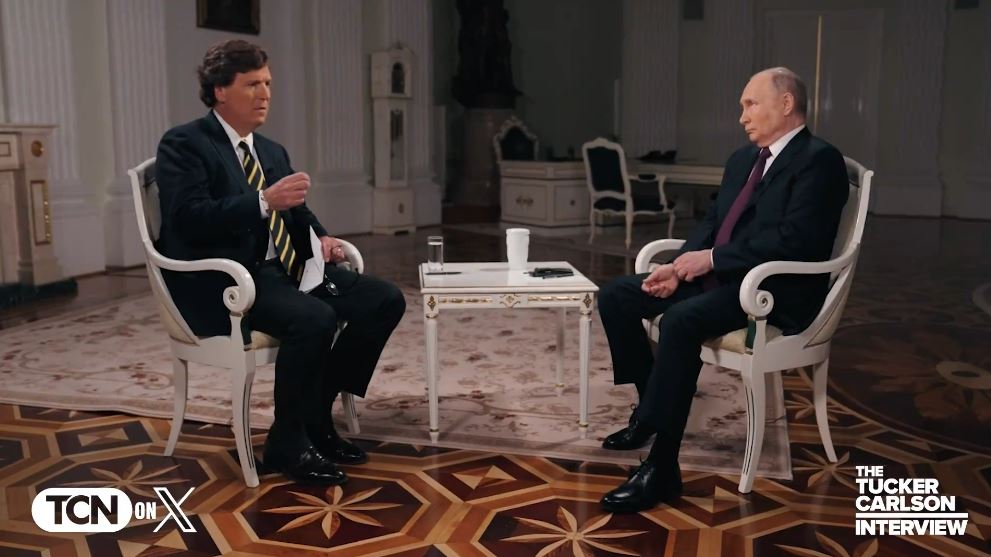In a recent engagement with the press, Dmitry Peskov, the Kremlin spokesperson, articulated the motives behind Russian President Vladimir Putin’s decision to engage in a dialogue with Tucker Carlson, a notable figure within American conservative journalism. This interaction was highlighted during an interview with the TASS news agency over the weekend, where Peskov emphasized the value of this exchange as a means to foster reflection among Western audiences.
The Strategic Interview
The conversation between Putin and Carlson, which spanned two hours and predominantly explored the dynamics between Moscow and Kiev, was seen by the Kremlin as a strategic platform for Putin’s voice to be amplified in Western circles.
Responding to queries regarding the significant attention the interview attracted—achieving over 100 million views on Carlson’s X account (previously known as Twitter) within a single day—Peskov remarked:
“We cannot expect that our point of view will receive support. The main thing for us is that our president is heard. And if he is heard, this means more people will think about whether he is right or not. They will think, at least,” Peskov stated.
Navigating Western Media Landscape
The spokesman further highlighted the challenges faced by Russia in breaking through the dominant narratives propagated by Western media outlets, primarily controlled by the US and the UK. Peskov’s comments underscored the importance of presenting the Russian perspective to the global audience, especially in contexts where media ownership can influence public discourse.
“The Anglo-Saxons, one way or another, own all the largest broadcasters, all the largest newspapers, and so on. And against this background, the main thing is to give people the opportunity to become acquainted with our point of view. And in this regard, this is a very good opportunity.”
A Historic Conversation
This interview marks a significant moment, being the first extensive dialogue between Putin and a member of the US media since the onset of tensions between Moscow and Kiev in early 2022. Throughout the discussion, Putin offered a detailed examination of the historical ties between Russia and Ukraine, shedding light on the complex relationship that has been further complicated by external influences post the dissolution of the USSR.
The engagement between Putin and Carlson is not just a mere media interaction but a calculated move to introduce and emphasize the Russian narrative within the global discourse, particularly among Western audiences. Through this dialogue, the Kremlin aims to encourage a broader contemplation of its stance amidst prevailing geopolitical tensions.

















